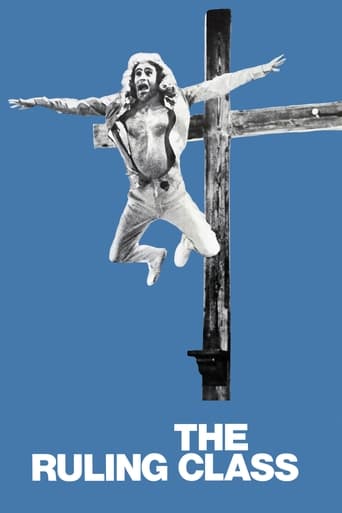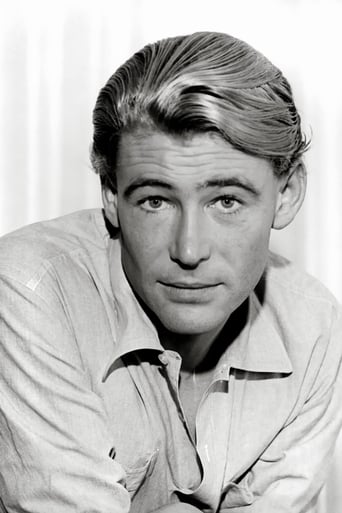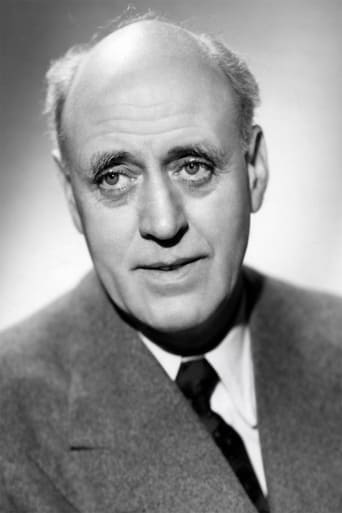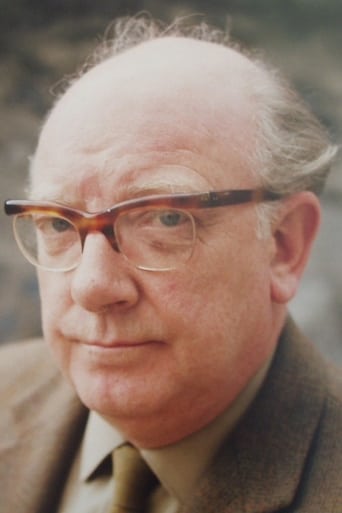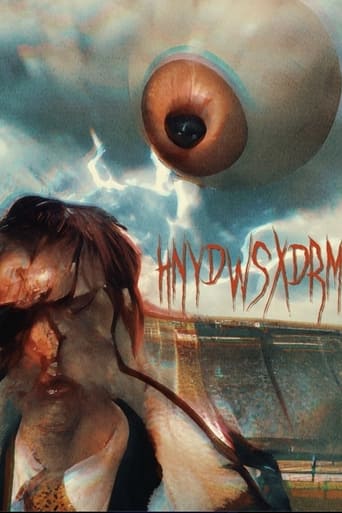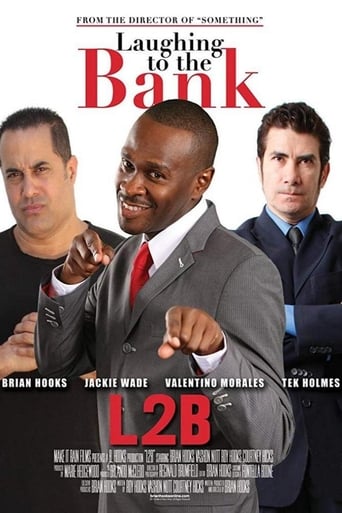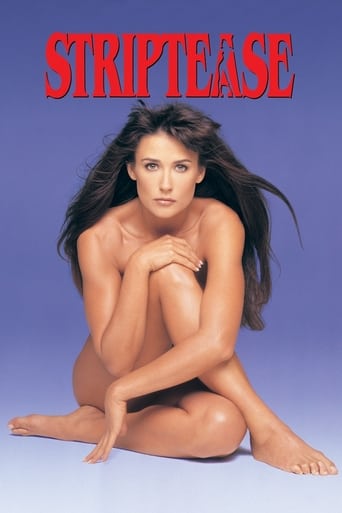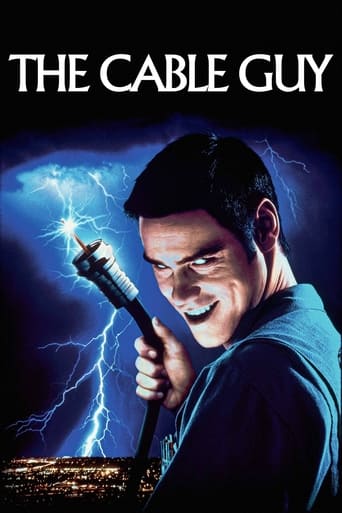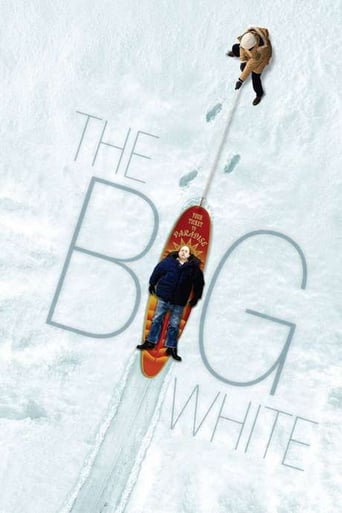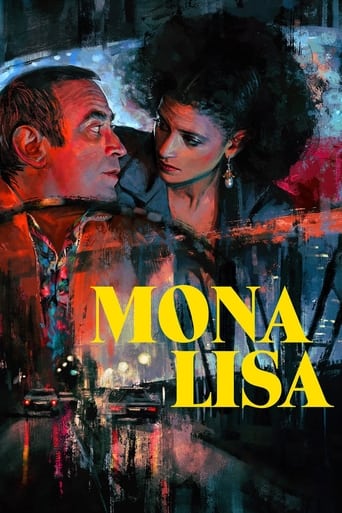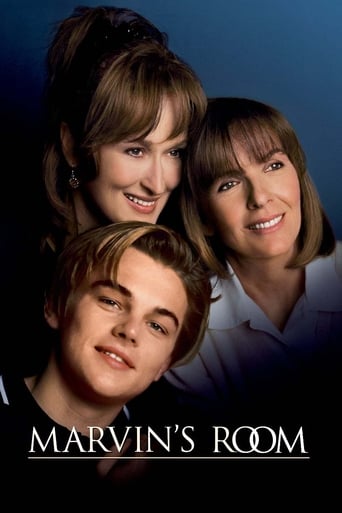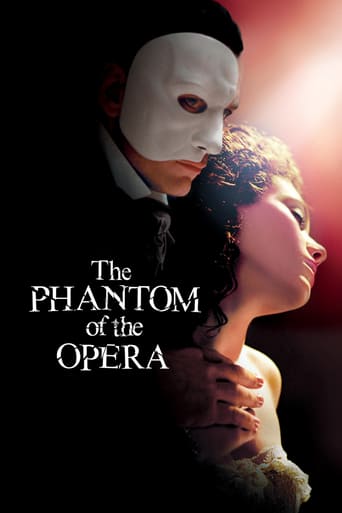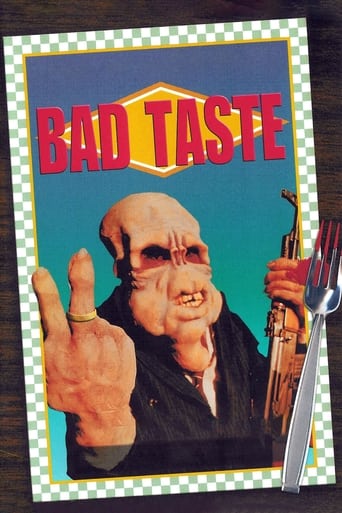The Ruling Class (1972)
When the Earl of Gurney dies in a cross-dressing accident, his schizophrenic son, Jack, inherits the Gurney estate. Jack is not the average nobleman; he sings and dances across the estate and thinks he is Jesus reincarnated. Believing that Jack is mentally unfit to own the estate, the Gurney family plots to steal Jack's inheritance. As their outrageous schemes fail, the family strives to cure Jack of his bizarre behavior, with disastrous results.
Watch Trailer
Cast


Similar titles
Reviews
If you don't like this, we can't be friends.
I think this is a new genre that they're all sort of working their way through it and haven't got all the kinks worked out yet but it's a genre that works for me.
The plot isn't so bad, but the pace of storytelling is too slow which makes people bored. Certain moments are so obvious and unnecessary for the main plot. I would've fast-forwarded those moments if it was an online streaming. The ending looks like implying a sequel, not sure if this movie will get one
This is one of the best movies I’ve seen in a very long time. You have to go and see this on the big screen.
'Kind Hearts and Coronets' meets 'If...'.Peter O'Toole gives a masterclass as a well-depicted paranoid schizophrenic who thinks he's God, inherits an Earldom and is 'cured' by the superb Michael Bryant's psychiatrist, only to become Jack the Ripper in the House of Lords.The anti-establishment message is battered home with a 15lb sledgehammer, but the cast of English (and most of the Scottish) movie stalwarts at least have a good time. Partly stagey, partly like avant-garde television of the time, and partly 'Gosford Park', TRC is not to be watched for anything other than to see actors having a terrific romp.No story, no meaningful social/religious/moral comment, just great actors (and crew) doing a great job with a somewhat ropey playscript. Special mentions for Carolyn Seymour, Michael Bryant, Arthur Lowe, Nigel Green and of course Alastair Sim wiping the floor with the lot of them. Oh, and the quintessential James Villiers idiotic toff performance.
'rich knobs and privileged a***holes can afford to be bonkers 'The first 10 minutes or so of this film are quite interesting, with a good cast of British eccentrics (especially the splendid Alastair Sim and Arthur Lowe). I quite enjoyed the gathering at the start with the reading of the will and the arrival of the new Lord (and even the subsequent surreal song and dance routine with the ladies organising the local fête) – but it then descends into a complete pretentious mess. Very disappointing considering the talented actors deployed here. I nodded off just after Peter O'Toole had stopped thinking he was God and decided he was Jack the Ripper instead - this was partly because I'd had some wine with my meal, and not entirely down to the reactions this film provoked in me. The odd sequence at the end in the House of Lords reminded me of the final 2 episodes of the TV series 'the Prisoner' made 4 years prior to the release of this film.
Peter O'Toole becomes the 14th Earl of Gurney, head of one of the richest and most powerful families in England. He assumes the title upon the death of Harry Andrews. When Andrews is buried, the Reverend Alistair Sims comes to the family seeking reassurance that Andrews' having been found dead, hanging by a noose in his own bedroom, doesn't indicate suicide. After all -- burial in sacred ground and all that. Sims is told indignantly, good heavens, the man was wearing a cocked hat, underpants, and a ballet dress -- does that sound like suicide? The rest of the family carry on an intense discussion but every once in a while they're interrupted by a shriek from Sims, to whom realizations come only slowly, and one at a time. "Cocked HAT?" And, later, "Underpants?" And finally, "BALLET DRESS?" It doesn't help that the slightly nutty Andrews, who was in the habit of strangling himself while reciting patriotic speeches, is dead. O'Toole, as his successor, is downright loco.O'Toole believes he is Jesus Christ. He certainly LOOKS the part. He is given long flowing hair with bangs, and a short beard, and with his blue eyes looks exactly like a painting on a post card sold in one of those tourist shops around the Vatican.But if his appearance is bizarre, his beliefs are even worse. He thinks God is love. What an insane idea. In the end another madman changes O'Toole's engrams and turns him into "Jack," his real name. Unfortunately he becomes the wrong person, Jack the You-Know-What. He gives a speech in Parliament praising capital punishment, torture, and so forth, and receives a rousing applause from the assembly. Love doesn't sell. Cruelty wins by a mile.O'Toole described this as a comedy with tragic relief, and that's about it. It presents a pretty shabby picture of human nature, beneath the laughs, or the attempts at laughter, which too often evoke puzzled frowns.Peter Barnes' play was staged in 1968 and presumably written a year or two earlier, a period when the voice of iconoclasm was heard throughout the land, as the 14th Earl of Gurney might have put it before he was electrified.The late 60s were a time of revolution, first outrageously irrational and then violent. The movie may look dated because it so accurately reflects that evolutionary path. Of course some of its zingers never lose their sting. How does O'Toole know he's God? "Because whenever I pray, I find I'm talking to myself." Skewered here are class distinctions, snobbery, religion, love, and anything else you can think of, down to the roots of our cultural being. The problem is that it doesn't seem all that funny to me, not in 2010. There are so many shouts, so much gesticulating, dances that come out of nowhere, an immaterial sequence involving "La Traviata," the cast breaking into old songs like "My Blue Heaven," overacting generally, winks at an audience that already recognizes the joke.Since it's a whimsical, comic, tragic fantasy it needn't stick too close to reality -- actually, it mustn't -- and it doesn't. There's nothing at all amusing about paranoid schizophrenia, which is about the most terrifying form of the disorder. And if you bring together two patients who both believe they are Jesus Christ, you don't get the electrifying confrontation the movie gives us. The psychologist Milton Rokeach already brought THREE patients with the same delusion together and their eyes remained glazed. They were as emotionally flat as always when they were introduced. One commented, "Oh, so you're a cemetery rerise?" All the performances are fine. O'Toole's role is a difficult one but he handles it very well. Who can count the times he's played a madman? It's the would-be disturbing script and the in-your-face direction that keeps this from being the black comedy it wants to be. Sometimes subtlety plays better, as in "Dr. Strangelove," a product of the same period with a similar structure.
Back in 2001, The Criterion Collection saw fit to add "The Ruling Class" (1972) to their catalog; which means there is now a good print available in the correct aspect ratio, one that includes the entire original release running time of 154 minutes. It also means that "The Ruling Class" is now regarded in film circles as a "significant" movie. Of course almost any film student will tell you that "significant" is not necessarily synonymous with entertaining, critically acclaimed, or well-made.So if you are considering a purchase or have just had a confused post-purchase viewing experience the following discussion may prove useful. This is a British film, one I originally watched on the BBC a few months after its release. It was neither a critical success (mixed reviews) nor a box office sensation and hitting the BBC so soon after a theatrical release back then was not much different from going direct-to-video today.It was a counter-culture film, and much of my original enjoyment came from the obvious tweaking of certain cultural and political institutions. Much of this stuff has lost its power and appeal over the years.It has a lot of expressionistic and allegorical elements; this sort of stuff was (and is) relatively rare in an English language film and probably accounts for much of the current cult status of the film. The black comedy aspect of these elements has held up very well and you will understand the film better and enjoy it more if you don't take it literally.Jack, the 14th Earl of Gurney (Peter O'Toole), has recently inherited the family title and a place in the House of Lords of the British Parliament. The story actually begins with a cheerfully provocative black comedy sequence as his father, the 13th Earl (Harry Andrews), accidentally hangs himself while performing what is apparently a long-standing self-pleasuring ritual.Jack believes himself Jesus Christ and his family believes that they can get their hands on the estate once he produces an heir. Their idea being to have him committed and then become guardians of the child. Carolyn Seymour plays his uncle's mistress who is brought in to marry Jack. Her character throws a wrench in the works by falling in love with her new husband. Other than Jack, Seymour's character is the only one that undergoes any real change during the course of the film and she sells this transformation quite nicely while also providing one of the best striptease sequences you are likely to stumble across in a mainstream movie.As already noted the running length is 154 minutes, that's about the length of two movies and if the film were being produced today I suspect that it would be done as two separate films. Indeed it is really two stories with each having an entirely different tone. About midway through the film, the Jesus version of the 14th Earl is replaced by a Jack the Ripper version. In the process a farcical and relatively light-hearted black comedy is instantly transformed into a much darker story. Black comedy gives way to dark fantasy and hallucinations as the wheels fall off the story until a visually stunning ending.The 1972 theme being essentially that being forced to conform to the ritualistic practices of upper class British society produces a monster. That not being able to "do your own thing" unleashes a monster on the world. Unfortunately the basic cause and effect of this whole process is glossed over and one is left wondering why the film you have been watching has been replaced with something entirely different and far less entertaining.O'Toole underplays his two characters, don't expect a lot of Gary Oldham type excess. Jesus is more a mild narcissist than a booming holy roller. Jack (the Ripper) is much better mannered but obviously smoldering beneath his polite exterior.The laughs mostly come from the discomfort of Jack's family and from Alastair Sim's apoplectic bishop and Authur Lowe's collectivist butler who abuses the family with a "Benson" type frankness.There are two great musical sequences, a hunt club performance of "Dem Bones" (a homage to "The Prisoner") and the climatic scene in the House of Lords (a surreal montage of decay to the music of "Pomp and Circumstances" and "Onward, Christian Soldiers").Then again, what do I know? I'm only a child.

